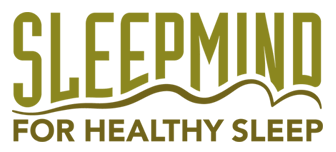
Healthy Sleep -
Your Key to a fulfilling Life
Why Healthy Sleep is Essential
Restful sleep is not only refreshing but also vital for your health, well-being, and performance. Whether you aim to excel at work, stay energized for your family, or achieve your personal best – it all begins at night. The key to better sleep often lies in the right guidance, the perfect bed, and a tailored sleep system.
My Mission: Your Path to Healthy Sleep
As an experienced sleep consultant, I am here to help you optimize your sleep.
Together, we will identify the ideal bed and sleep system for your needs and address any sleep issues that may have been holding you back.
Who Can Benefit from My Sleep Consultation?
I help individuals who:
- Value healthy and restorative sleep,
- Struggle with sleep problems like difficulty falling or staying asleep,
- Are unsure about choosing the right bed or mattress,
- Want to avoid back pain or muscle tension,
- Seek a healthier lifestyle for the long term.

Why Healthy Sleep is Essential

The Right Sleep System
Your bed and mattress should be tailored to your body’s unique needs. Only then can your
muscles relax fully, and your spine be properly supported.

The Right Sleep System
Your bed and mattress should be tailored to your body’s unique needs. Only then can your
muscles relax fully, and your spine be properly supported.

The Right Sleep System
Your bed and mattress should be tailored to your body’s unique needs. Only then can your
muscles relax fully, and your spine be properly supported.

10 important tips for healthy sleep:
- Regular Sleep Schedule: Go to bed and wake up at the same time every day, even on weekends. This helps stabilize your natural sleep-wake rhythm.
- Optimize Your Sleep Environment: Make sure your bedroom is quiet, dark, and cool. It should be free from distractions like noise, light, or electronic devices.
- Avoid Caffeine and Nicotine: Both are stimulants that can interfere with falling asleep. Try to avoid them, especially in the evening.
- Evening Relaxation: Engage in calming activities such as reading, meditation, or taking a warm bath to relax your mind and ease into sleep.
- Food and Drink Before Bed: Avoid heavy meals and excessive fluids right before bedtime. A full stomach or frequent trips to the bathroom can disrupt sleep.
- Limit Screen Time: Blue light from phones, tablets, or computers can interfere with the production of the sleep hormone melatonin. Avoid screens for at least 30–60 minutes before bed.
- Regular Exercise: Physical activity during the day promotes sleep, but avoid intense exercise close to bedtime, as it can stimulate the body.
- Establish Sleep Rituals: Create a pre-sleep routine, such as reading, relaxing, or listening to calming music. This signals to your body that it’s time to wind down.
- Adjust Light Exposure: Get plenty of natural light during the day to support your internal clock. At night, keep your environment dark to promote melatonin production.
- Stress Management: Chronic stress can severely impact sleep. Techniques like yoga, meditation, or breathing exercises can help calm your mind and improve sleep quality.

These tips can help you improve sleep and wake up feeling refreshed.
